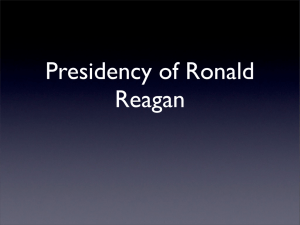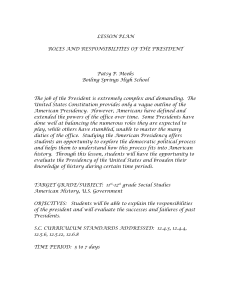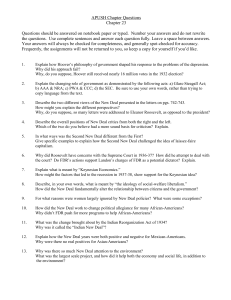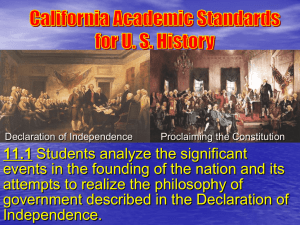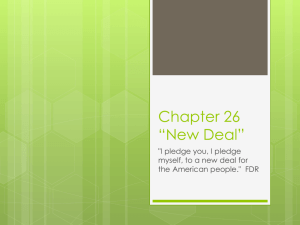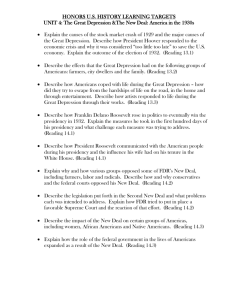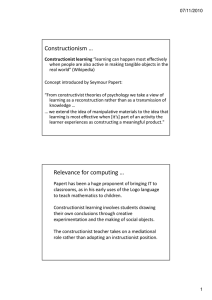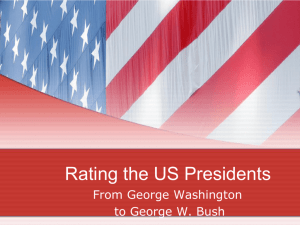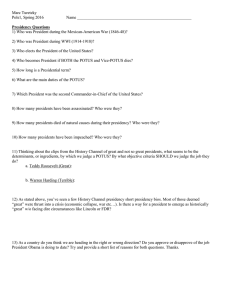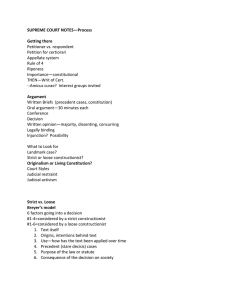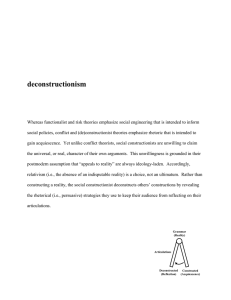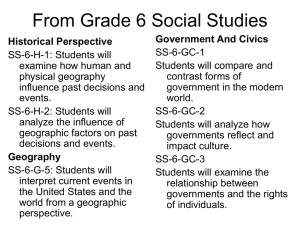HAG.Presidential Greatness
advertisement
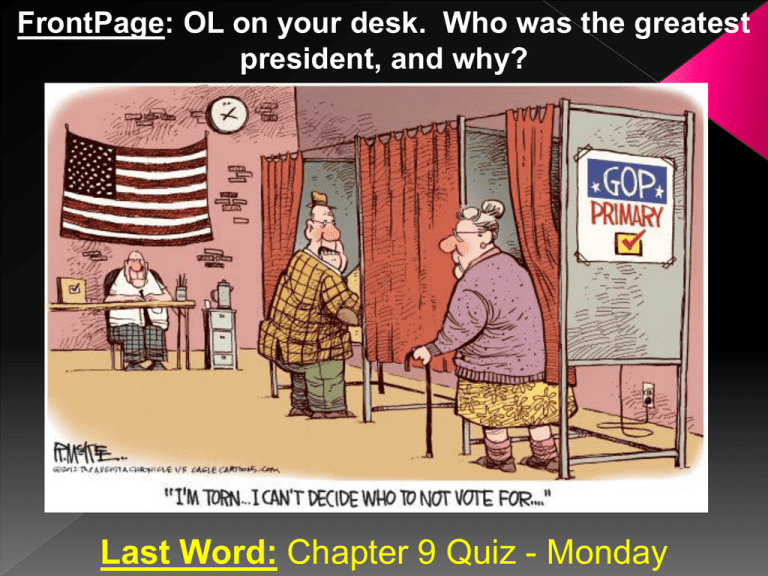
FrontPage: OL on your desk. Who was the greatest president, and why? Last Word: Chapter 9 Quiz - Monday President’s Name *Bill Clinton *Ronald Reagan Harry S. Truman Theodore Roosevelt Franklin D. Roosevelt George Washington Abraham Lincoln Source: C-SPAN historian survey Rank 15 10 5 4 3 2 1 President’s Name Warren G. Harding William Henry Harrison Franklin Pierce Andrew Johnson James Buchanan Rank 38 39 40 41 42 Public Persuasion Moral Authority Relations with Congress Performance Within Context of Times Crisis Leadership International Relations Vision/Setting An Agenda Economic Management Administrative Skills Pursued Equal Justice For All “…it is of course necessary to recognize that the man and the era, or events, must meet if true greatness is even to be possible. It is self-evident that Washington, Lincoln and FDR all faced enormous challenges. To succeed was to triumph, to fail was to be politically inept. It would be probably true to suggest that one or more ‘average’ presidents might have emerged in ‘great’ or ‘near great’ ranking had his era furnished him with dynamic challenges or exceptional opportunities… In ranking great presidents, one is compelled to keep in mind the old cliché of politics, ‘The man and the moment have met.” C-SPAN Presidential Historian Survey 3 different factors: › Presidential Style – how they view (and use) their power, and their management perspective › Leadership Qualities – you either have them or you don’t… › **Opportunity – are you feeling lucky, punk? Under the control of the president **A president’s style is determined by his views on… Power Management Under the control of the president Strict Constructionist (Hoover) The belief that the Constitution provides only a limited amount of power to a president Considered a weak view of power Vs. Loose Constructionist (FDR) Belief that the President should stretch the powers of the presidency in order to meet the needs of the nation Considered a strong view of power Under the control of the president “Detail- oriented (Jimmy Carter) › Involved in most small details of policy (micromanager); vs. “Big - Picture” (Reagan) › Avoid getting involved in the small details of policy; Rely on advisors and make “big decisions” *Possessing/lacking these qualities can contribute to success /failure. Understanding the public Ability to communicate Sense of timing Openness to new ideas Ability to compromise Political courage How do they handle events during their presidency? › Not under the control of the president **Wars, depression, inflation, economic boom, terrorism, etc.
